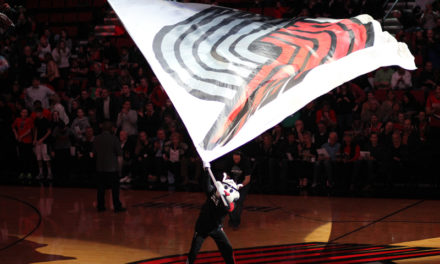As September approaches, the Major League Baseball (MLB) season is roaring to a close. With the post-season only a month away, fans will soon get their first taste of the new playoff format.
In place of the old system, which sent the three division winners and one wild card team from each league into the playoffs, the new format includes an extra wild card team from each league. The two wild card teams will face off in one winner-take-all game, with the victor advancing to the division series.
The effects of this new playoff format have been debated ad nauseam, and until we actually see it play off, no one can say definitively whether the change was for better or worse.
It is indisputable, however, that more teams than ever before have a legitimate shot at playing in the post-season. With one month to go, nine teams are within five games of a post-season berth.
This added competition makes a team/player breaking the rules of competition all the more frustrating. This season, two of the 10 teams in contention have faced scandal. Oakland Athletics pitcher Bartolo Colon was recently served a 50-game suspension after testing positive for elevated testosterone levels.
Colon was 10-9 with a stellar 3.43 ERA at the time of his suspension. Less than a week earlier, San Francisco Giants’ outfielder Melky Cabrera was suspended for a similar violation of the league’s performance enhancing drug (PED) policy. Cabrera was batting .346 with 11 home runs and 60 RBIs at the time.
Colon’s A’s are currently tied for the second wild card spot in the American League and Cabrera’s Giants have the best record in the National League West.
One would imagine that the A’s and Giants’ fellow playoff contenders are frustrated by this. The Dodgers do not have any players who have tested positive for an illegal substance this year.
Nor do the Pirates, Tigers or Angels. Rather, all of these teams have put together great seasons this year while playing within the rules.
Meanwhile, both the A’s and the Giants’ records are artificially inflated by players who cheated. The A’s would not be where they are today without their ace pitcher Bartolo Colon’s 10 wins and above-average ERA.
The Giants would not be keeping pace with the Dodgers without all-star game MVP and batting title contender Melky Cabrera. Both players’ irregularly spectacular seasons were directly related to their performance-enhancing drug (PED) use.
The league deals with rule breakers, like Colon and Cabrera, by punishing the players themselves. The teams, however, get off scot-free. Yes, they have to make do without the offending players, but nothing is done to adjust for their PED-inflated records.
Both the A’s and the Giants cheated to get into playoff contention and the league knows about it, but neither team either has been or will be punished for it.
Both teams still are in contention to make the playoffs. The increased competitiveness in baseball this year has made it clearer than ever that teams should be punished for their players’ actions.
A team with a known user of a banned substance should be given a one-year post-season ban. This will keep teams from benefitting from the artificial record inflations that go along with cheating players.
A one-season playoff ban will also help the league to achieve its ultimate goal of completely eradicating PED use from the game.
Teams will have a greater incentive to test players. As matters stand now, teams can benefit from a cheating player. The fear of a one-season post-season ban will lead teams to more strictly comply with league testing and initiate more of their own testing at all levels of the game.
A lost season would result in fan anger or, worse, disinterest, leading to drastically reduced ticket sales and enormous decreases in revenues. No player in baseball is worth giving up a season.
This increased team enforcement will give the players an incentive to follow the rules. In the current system, players like Manny Ramirez have been able to benefit financially as a result of illegally inflated statistics.
Teams are already cautious with reported PED users, but a one-season playoff ban would take this to the extreme.
Teams would not only subject potential new players to highly stringent testing standards before acquiring them, but a single positive test would become career-threatening. As mentioned above, there is not a single player in baseball worth a lost season. Players and their agents know this.
Instituting a one-year post-season ban on the teams of PED users would enhance the game of baseball. In a league that is becoming increasingly competitive, it will eliminate PED-inflated records and clean up the great game of baseball.
The revenue decrease and fan disaffection that would result from a lost season would motivate teams to establish stricter PED testing policies, which will in turn incentivize players to avoid cheating.
An overhaul of the league’s enforcement of PED policy would competitively enhance the game of baseball.
–By Nathaniel Ludewig
The Emory Wheel was founded in 1919 and is currently the only independent, student-run newspaper of Emory University. The Wheel publishes weekly on Wednesdays during the academic year, except during University holidays and scheduled publication intermissions.
The Wheel is financially and editorially independent from the University. All of its content is generated by the Wheel’s more than 100 student staff members and contributing writers, and its printing costs are covered by profits from self-generated advertising sales.



